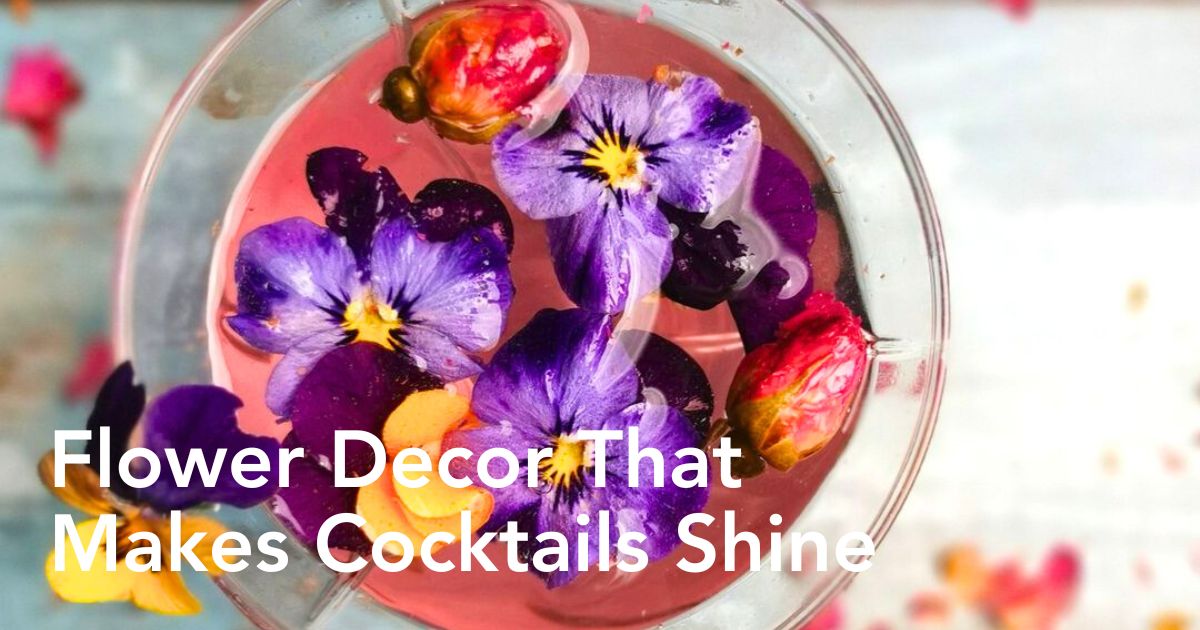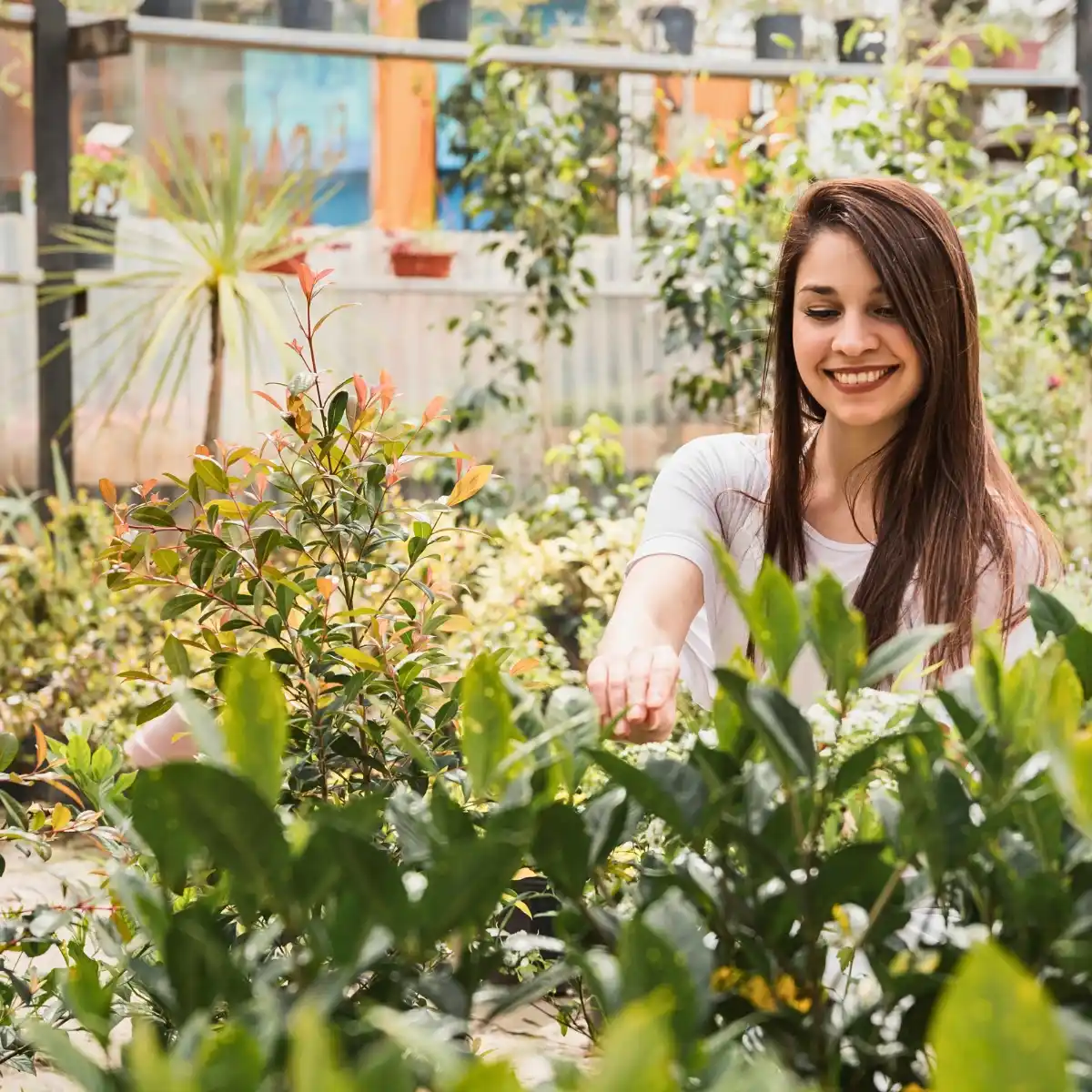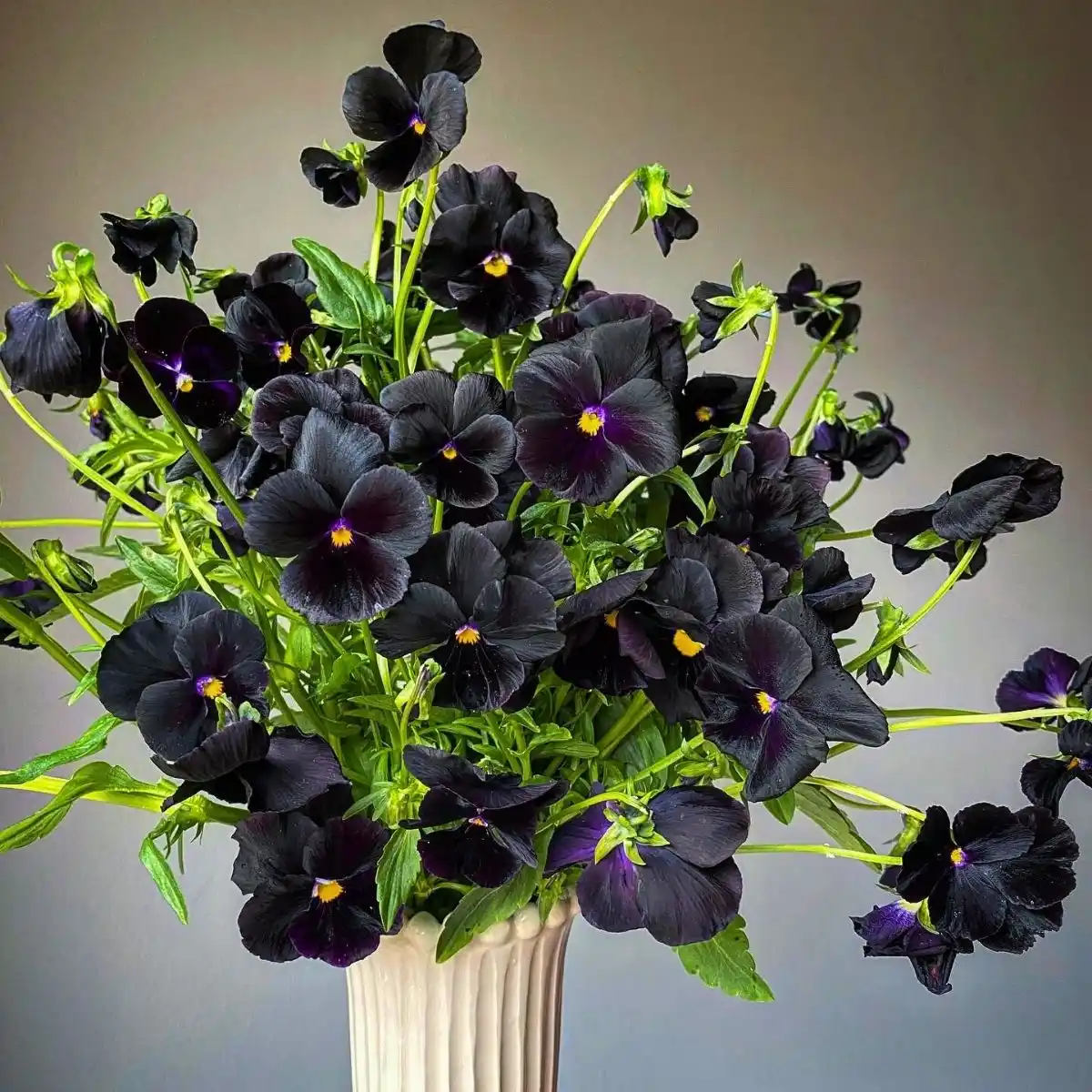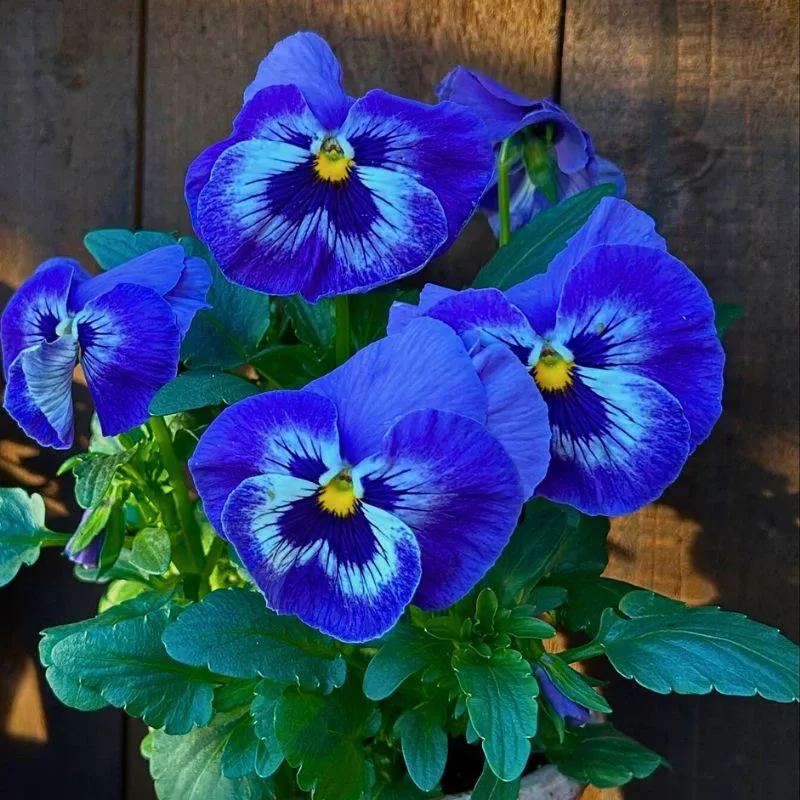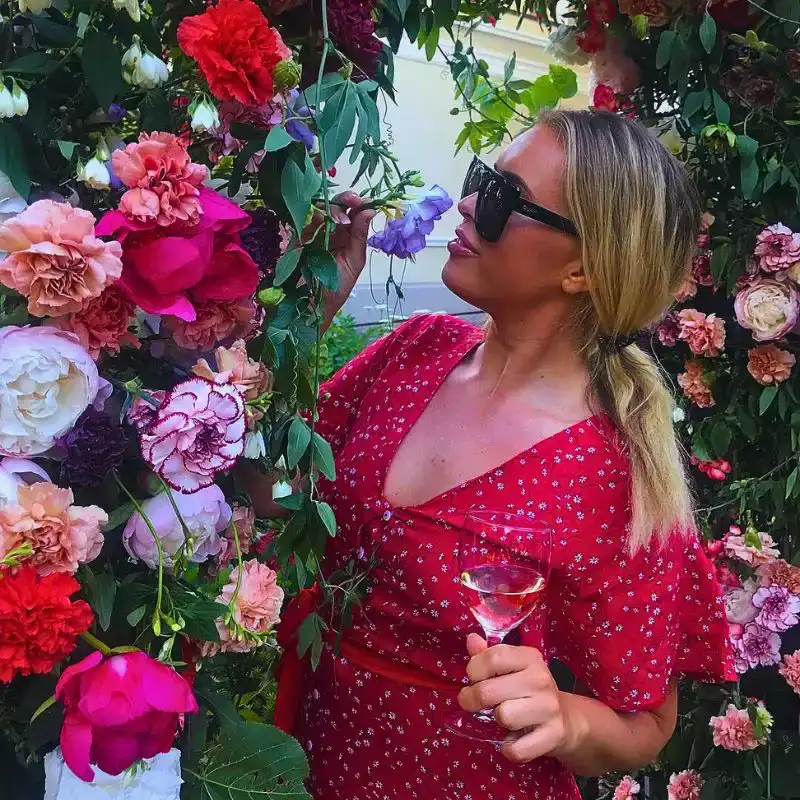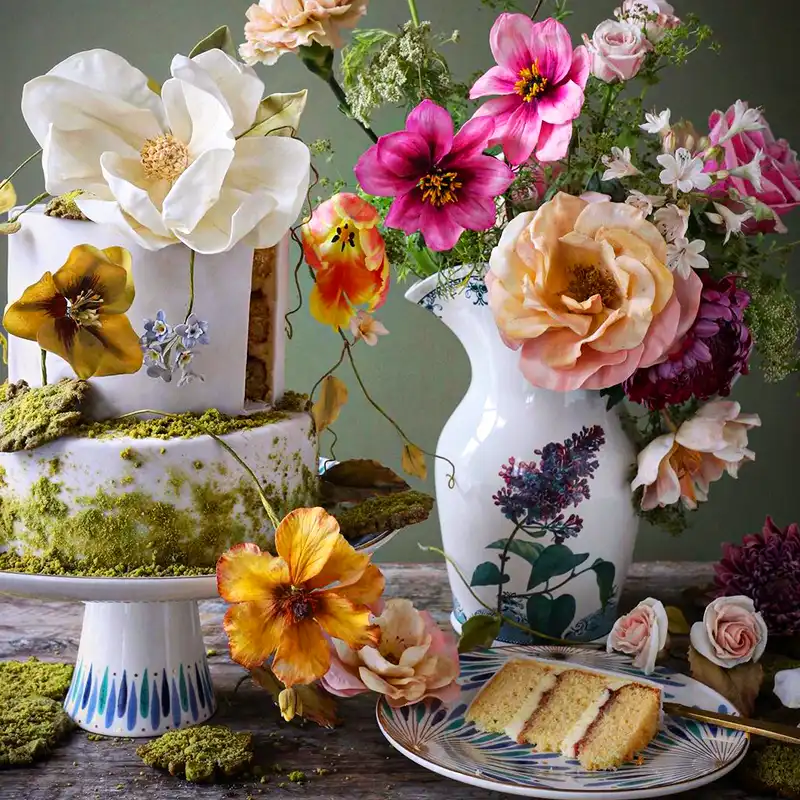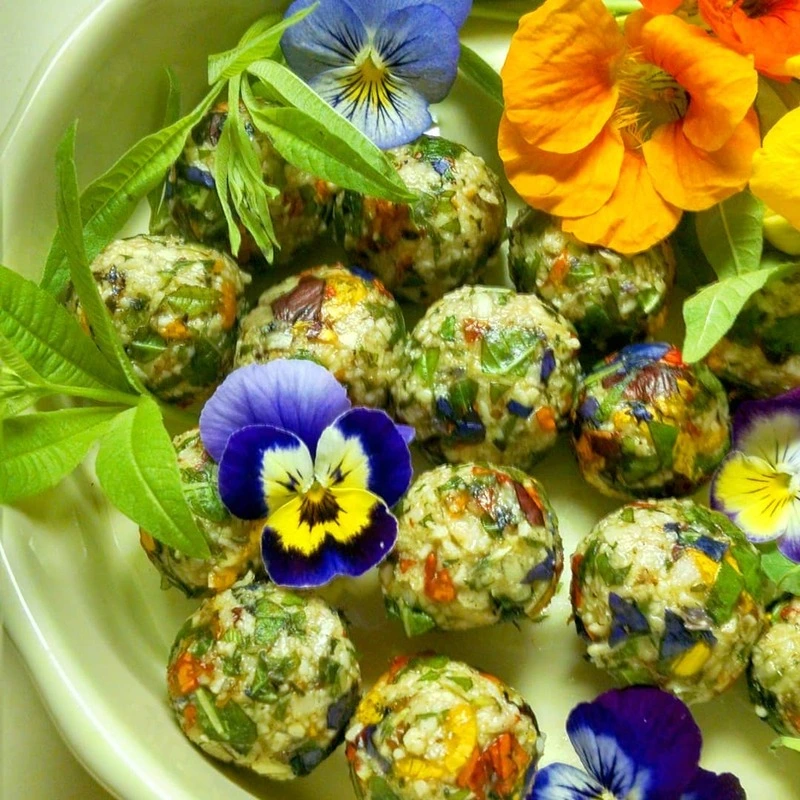The consumption of a cocktail is an inherently sensory experience. It engages all the senses; the clinking music of glass against ice, the fragrance of all things floral or sweet, the flavor of something new, the cold condensation within your palm, and last but not least, a beautiful visual creation of color, texture, and composition. Add these eight edible flowers to elevate the way any cocktail looks.
Edible Flowers for Cocktails
Flowers have been used in cocktails for hundreds of years, and there are plenty of good reasons why. These additions give visual beauty, flavor, and creativity to a variety of drinks. However, adding a flower to your cocktail creation isn’t always as simple as it sounds. It’s important to understand every flower’s flavor profile, how it can intensify others, and which flowers are safe to consume.
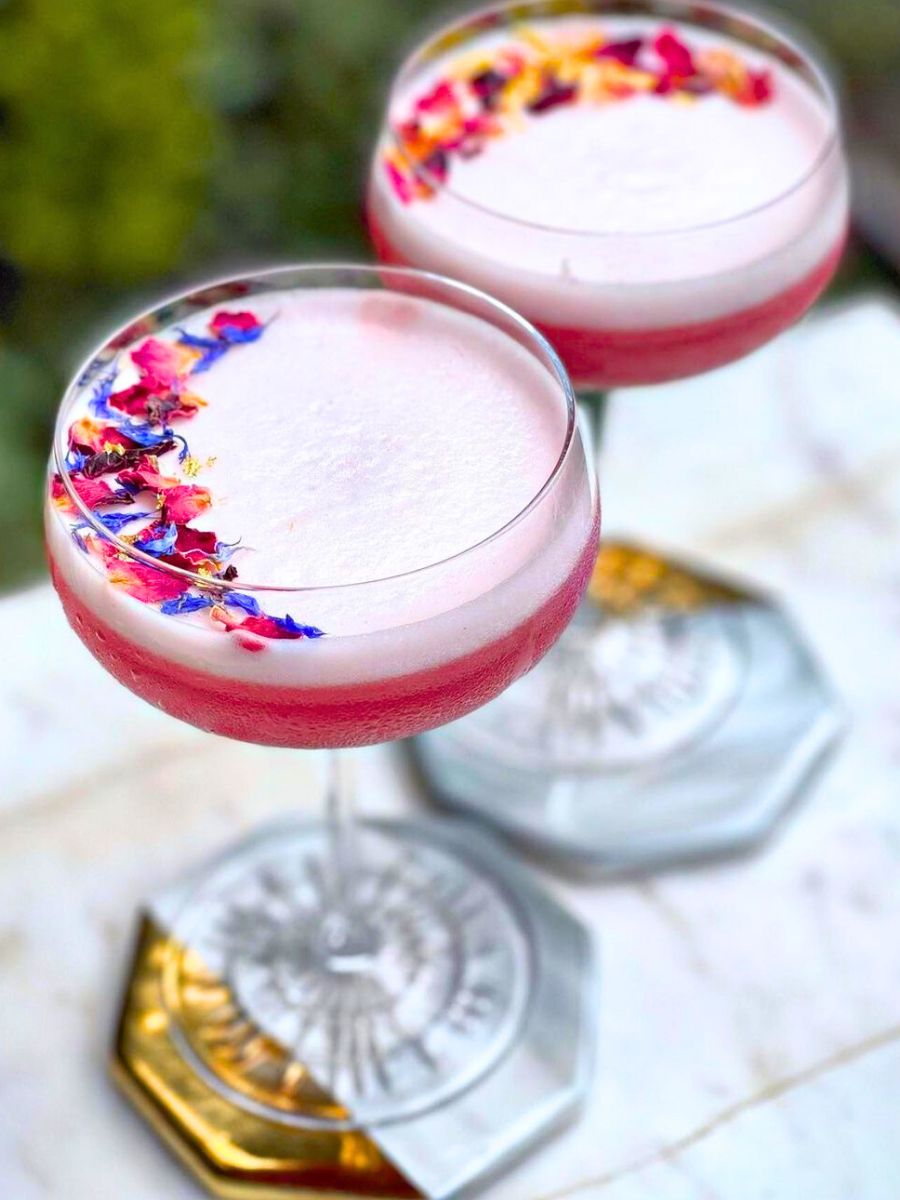
If you want to add a floral touch to your cocktails, these eight edible flowers are a great start. From peppery nasturtiums to chamomile, you’ll find a floral garnish that perfectly suits your drink.
Eight Edible Flowers to Add to Your Cocktail Creations
There are so many great reasons to add edible flowers to your cocktail mixes. Not only do they add natural flavor and aroma, but they also look beautiful and introduce bright colors to your drinks without the need for artificial ingredients.
From mild and sweet to spicy and herbaceous, you can infuse your cocktails with loads of natural flavors by adding them to your drinks. Or you can simply use them as a garnish for visual effect—the choice is yours!
1. Nasturtium
Nasturtiums are flowers with bright yellow, orange, and red petals. With a flavor profile similar to mustard, radishes, and arugula, these flowers bring pepperiness and earthiness to any drink they are added to.
You can also consume nasturtium leaves, which look similar to small, green lily pads. These versatile flowers work well with flavors of citrus, particularly lemon, orange, and tangerine. When it comes to the mild peppery flavor of a nasturtium, you need to balance it out with plenty of acidity and just a hint of bitterness.
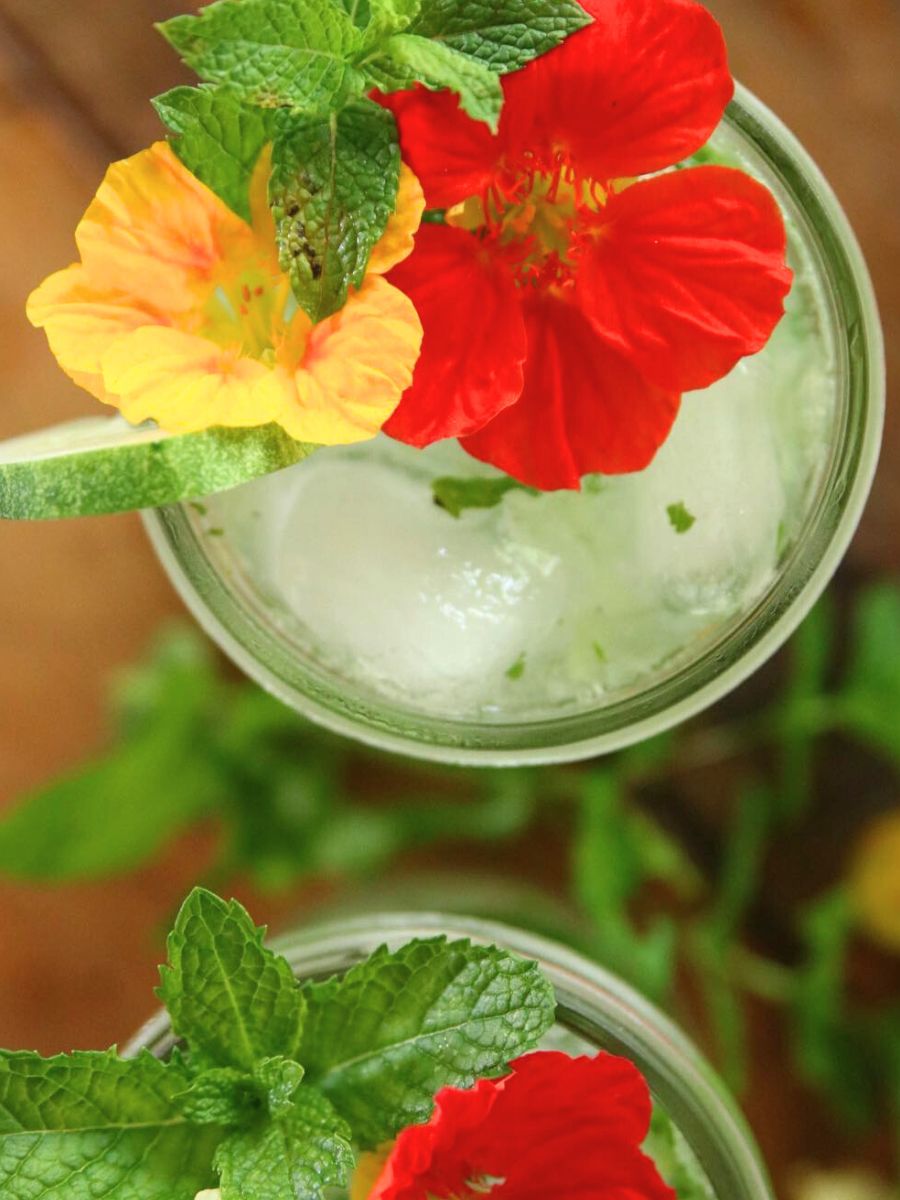
2. Pansy
The pansy is easily one of the most-used edible flowers used in the cocktail world. They come in several colors, including indigo, sunshine yellow, blood red, and even black, which makes them very versatile, and their flavor is earthy and mild.
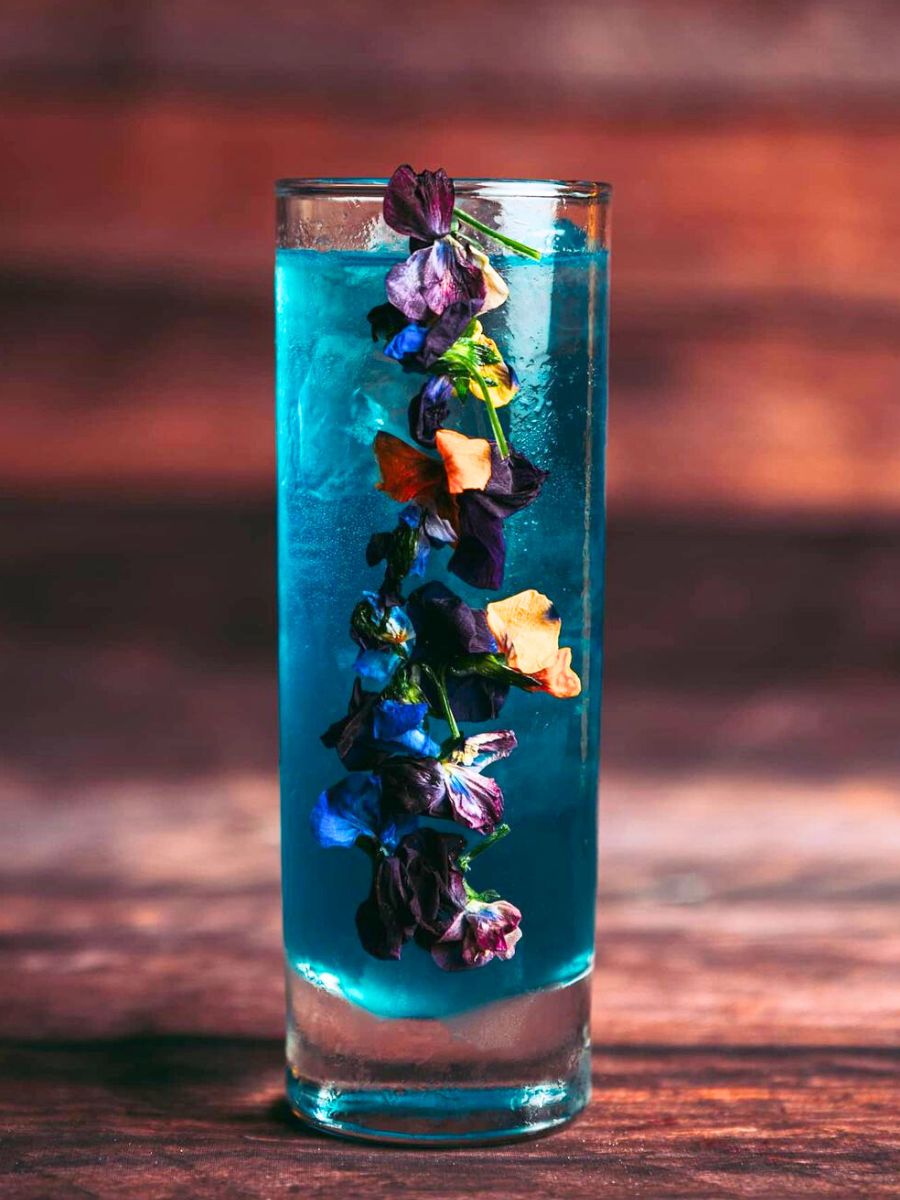
Due to their subtle flavor and colors, you can use pansies for just about any cocktail you like. They work extremely well as garnish flowers for champagne or gin and tonics. They're the proper cherry on top, as many would say!
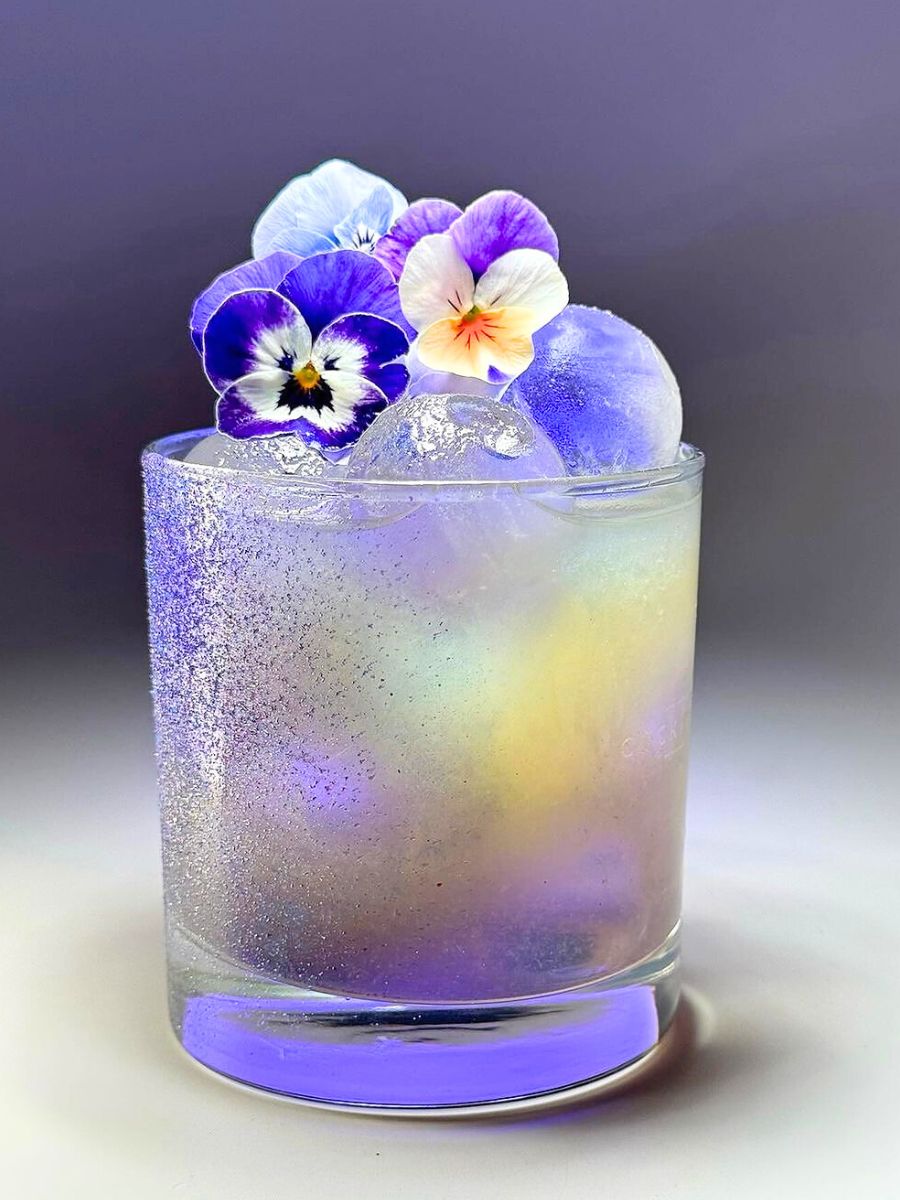
3. Hibiscus
Hibiscus is a very popular edible flower, and it’s often added to beverages, both alcoholic and otherwise. In fact, you’ve likely already had a cocktail to cut the week that has a Hibiscus flower as the top decor, or even in a mocktail like kombucha or iced tea that features it as an infusion. But if you haven’t, here’s what you can expect from it.
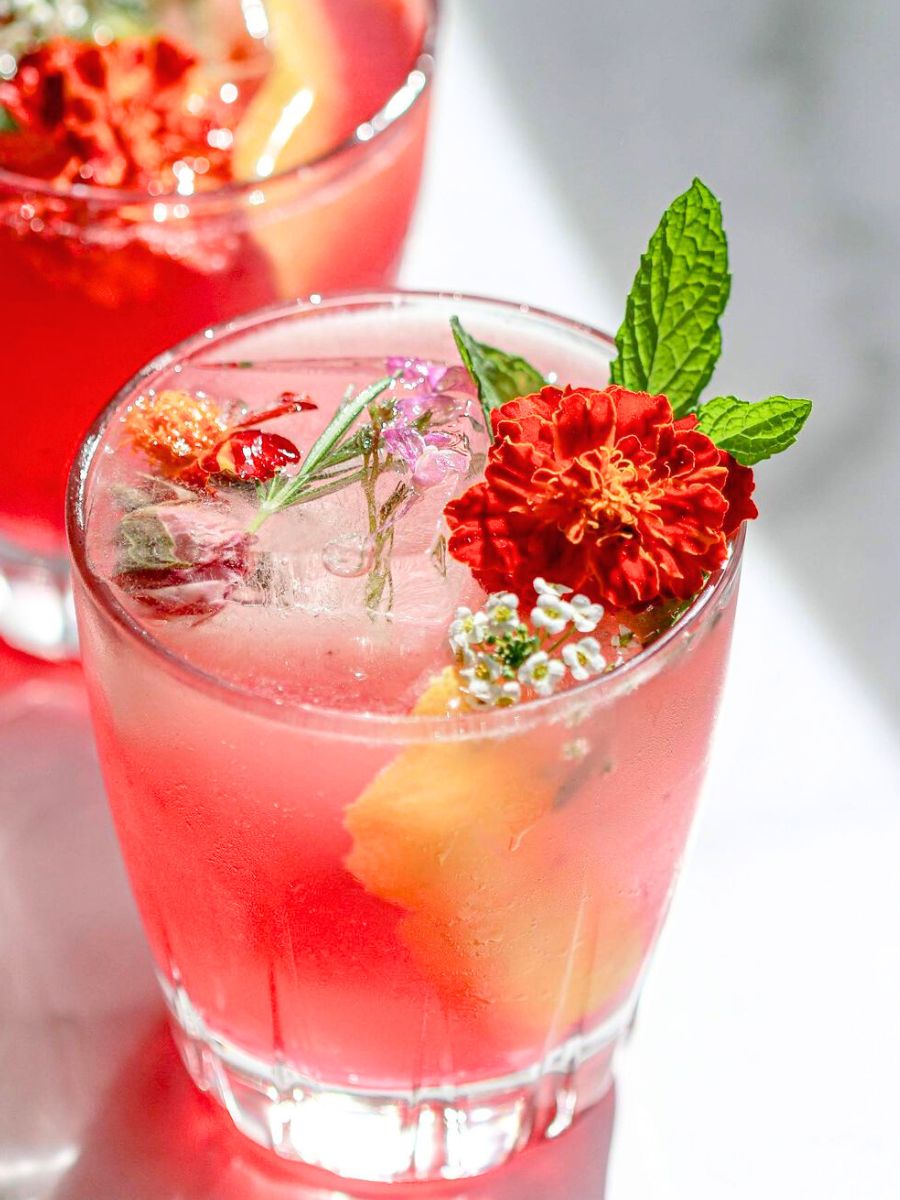
Hibiscus is a large, pink flower with distinctly tropical aesthetics. It offers a fruity, tart, and tangy flavor profile that complements a variety of mixed drinks. To make the flower even more attractive, it releases a powerful crimson-colored pigment into any liquid it’s infused with, creating the potential for many interesting visual cocktail creations.
4. Honeysuckle
Honeysuckles add a burst of fruity sweetness to anything you add them to. With notes of jasmine, vanilla, and of course, honey, you can incorporate these sunny little edible flowers into a variety of cocktails. One of the most popular ways to merge honeysuckle with cocktails is to make a honeysuckle-infused vodka. Not only that, but these flowers also go well in wine-based spritzers, margaritas, and gin and tonics.
5. Rose
When most people think of roses, they think about giving or receiving them, not necessarily putting them in a drink. But these iconic, layered queen flowers are good for so much more than just romance. They are wholly edible and add both a romantic and classy touch placed on top of any cocktail creation.
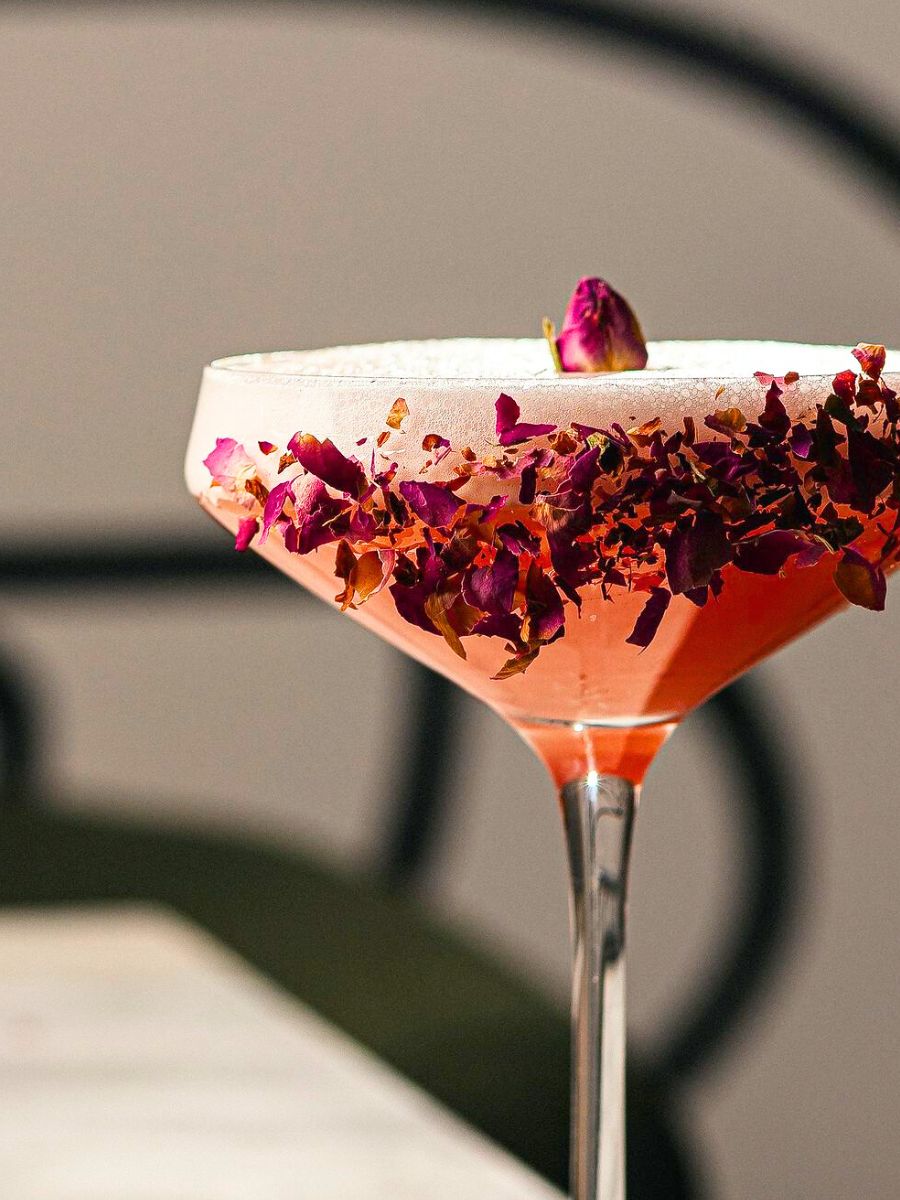
Roses possess a potent floral fragrance that is sweet and almost perfume-like. The flavors of edible roses go very well with citrus, hazelnuts, and coconut. The flower also pairs beautifully with luxury spices such as cardamom and saffron. Aside from cocktails, Turkish cuisine famously uses a lot of rose in both sweet and savory dishes, which can be a fun element to experiment with while mixing drinks.
6. Chamomile
Chamomile is a soft, gentle, and almost soporific flower that’s often used in tea for its relaxing and sleep-inducing properties. But this mellow, yellow herb can also be used in certain cocktails, especially when you know what flavors it pairs with.
With its herbal flavor, chamomile matches perfectly with other mild garden aromatics such as bergamot, lime, and geranium. It works best in cocktails designed to elicit a tranquil atmosphere, as the qualities of chamomile tend to make people feel calm and comforted.
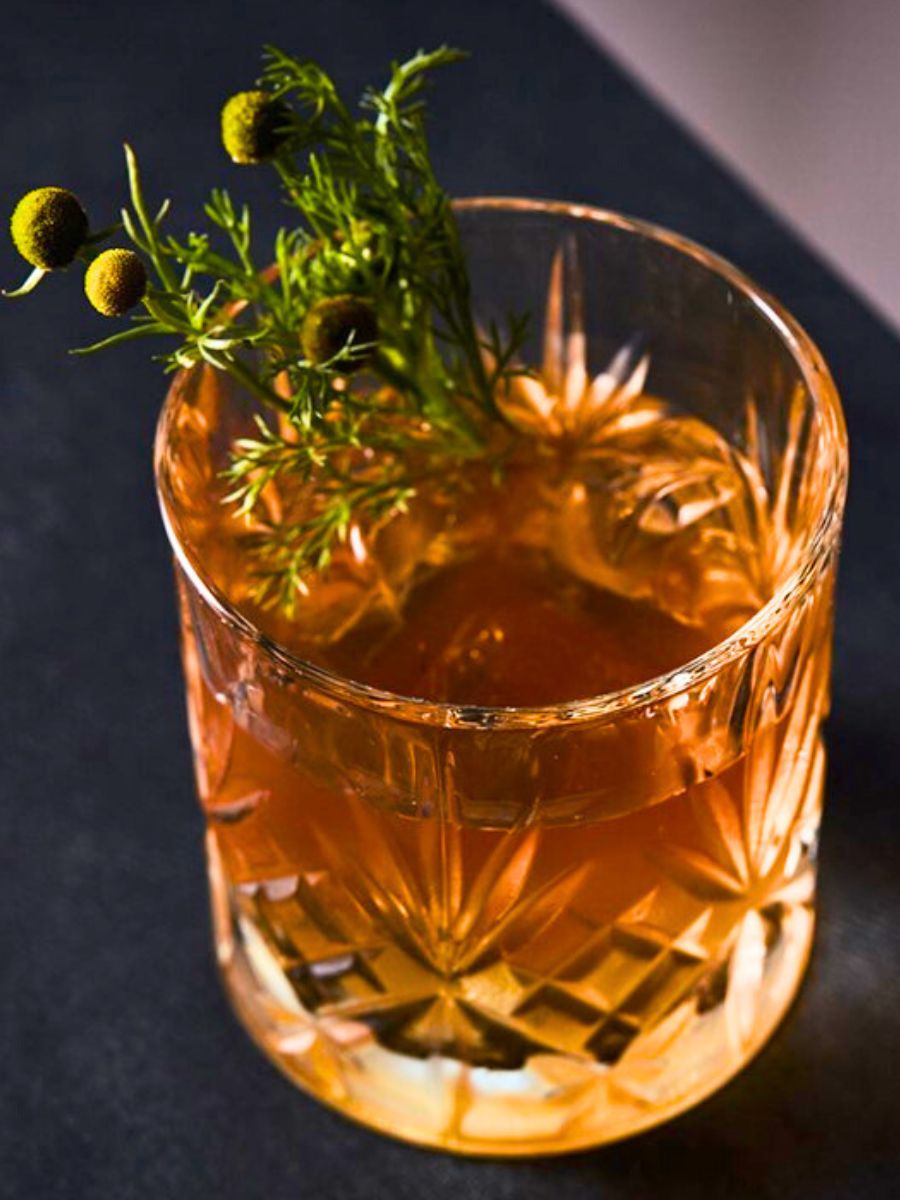
7. Violet
Violets, named after the copious purple color of their petals, are in the list of eight wonderful edible flowers to add to cocktails. With a gentle, sweet, and subtle floral flavor, violets bring a sense of grace to everything around them. The pigment hidden in those petals is where a violet’s magic truly lies. When infused into spirits, syrups, or mixers, it produces a deep indigo color that is unique.
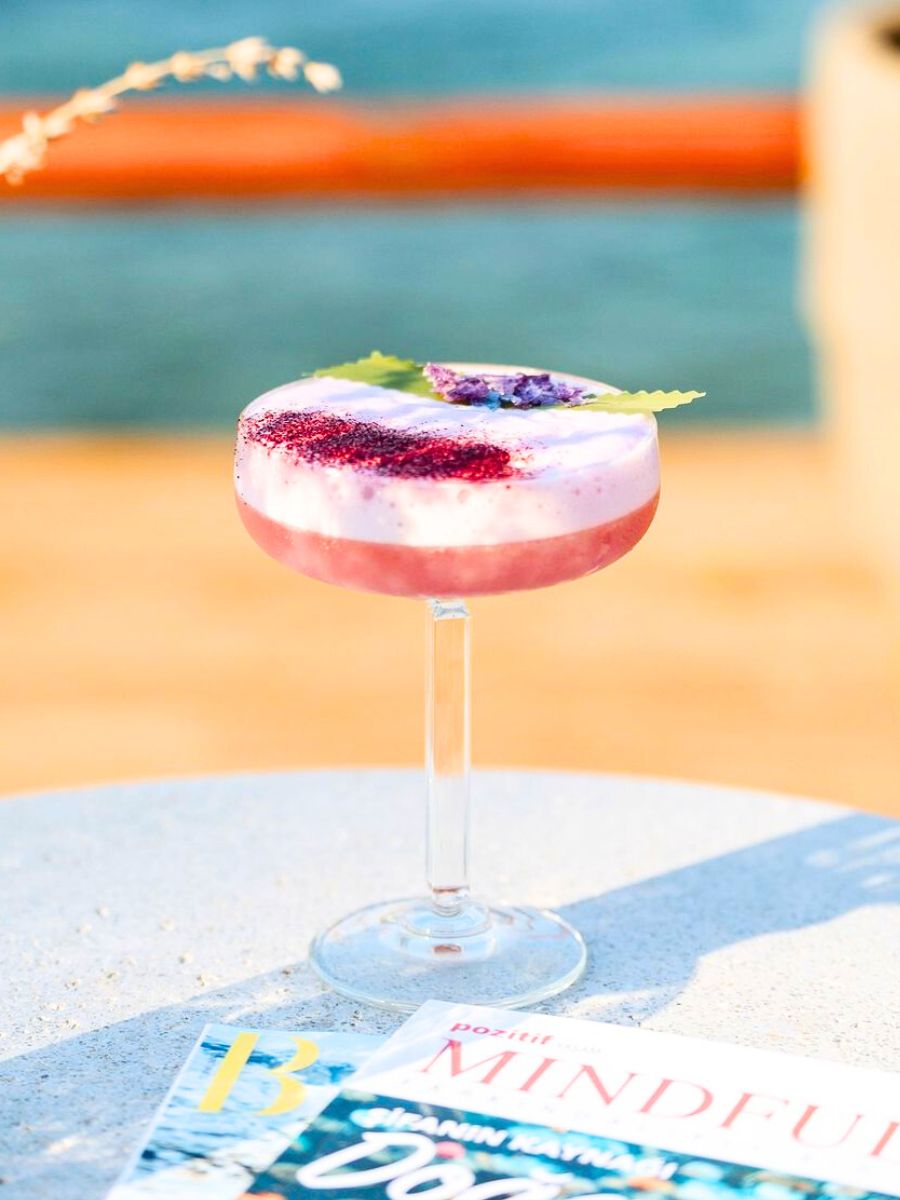
8. Lavender
This subdued purple plant, besides being one of the most popular ones to offer calming properties for anxiety and sleep aid, provides intriguing floral flavors to otherwise regular recipes. Boil the buds of lavender with sugar to make lavender simple syrup to pour into your favorite cocktail, or even brew tea with edible lavender, and sprinkle the buds into your favorite cup or glass. The possibilities are infinite.
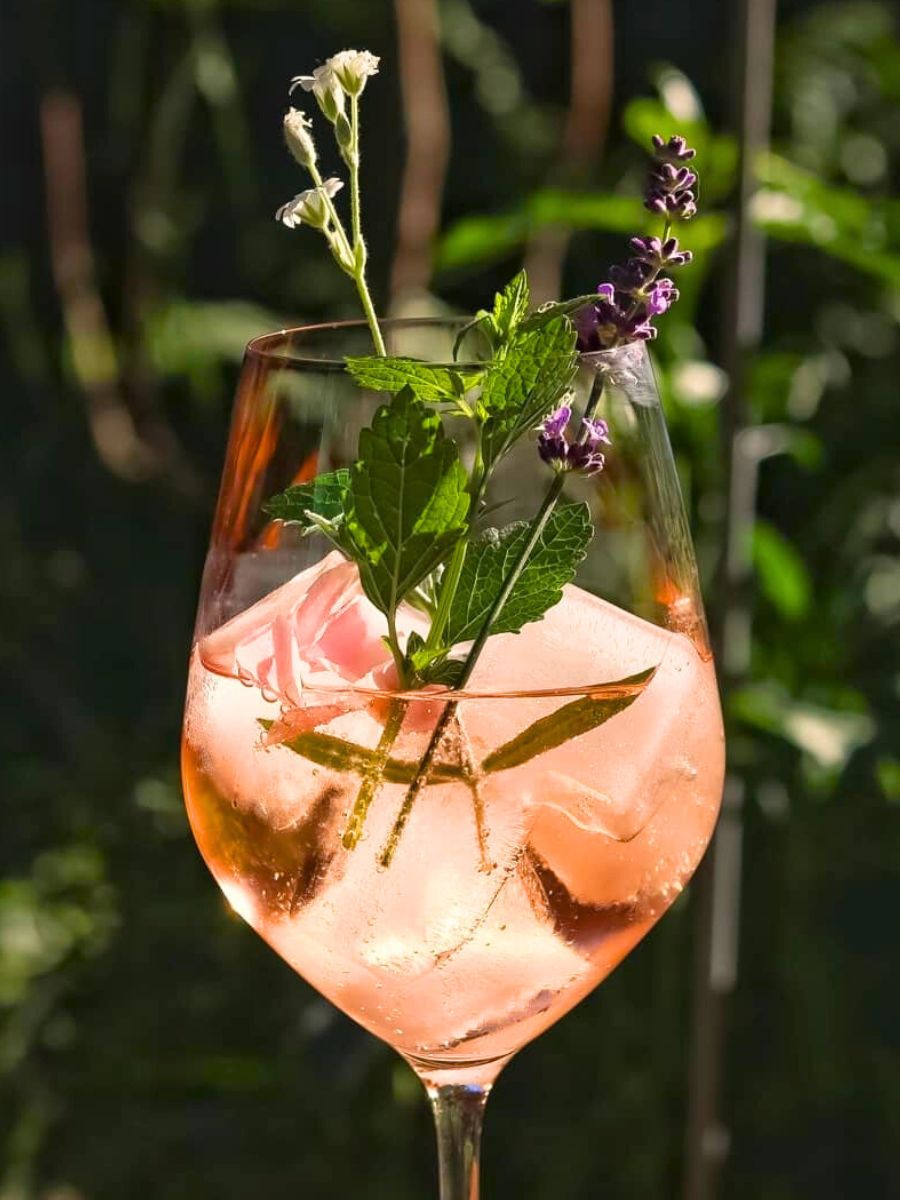
Make Your Mixes Drinkable and Eatable With Edible Flowers
There are a million and one ways to make a good cocktail, but the presence of a flower adds near-instant upliftment to it.
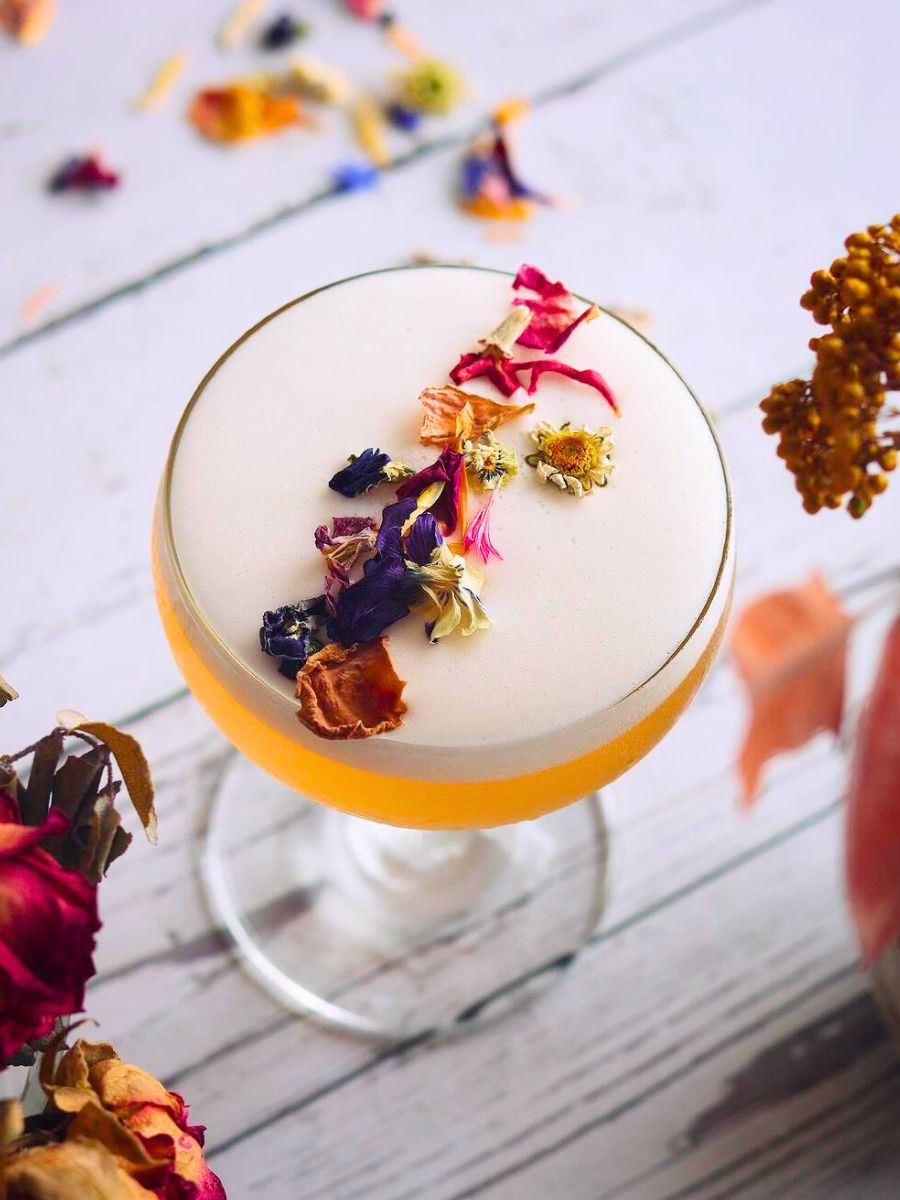
From visuals to fragrance to flavor and pigmentation, flowers are so diverse in what they offer the senses. It’s no wonder that they’ve served as inspiration for both cocktails and mocktails for so many years. Try something new and see what happens. The chances are you’ll discover a memorable and natural flavor combination that’s refreshing and inspiring.

